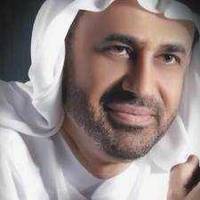
March 2011, in the midst of the Arab uprisings in the region, a petition demanding the establishment of an elected assembly was presented to President Khalifa bin Zayed Al Nahyan. The petition was supported by people across the political spectrum, including members of the Reform and Social Guidance Association (al-Islah). In response to the petition, authorities arrested five of the signatories in May and ultimately sentenced them to three years in jail. President Khalifa pardoned them in December. Nonetheless, al-Islah, which supported the five defendants, continued to demand political and civil freedoms throughout the country and a stop to government interference in public life, including the media and the judiciary. In December, seven UAE citizens were stripped of their nationality, rendering them stateless. The head of al-Islah, Sheikh Sultan bin Kayed Al Qassemi – a member of one of UAE’s royal families – was later arrested.
A total of 94 defendants have been facing trial in 2013, most of them members of al-Islah. They were charged with running an institution aimed at overthrowing the government, thereby allegedly violating Article 180 of the UAE penal code, which prohibits founding, organizing or operating a group that aims to overthrow the country’s political system. 69 of the defendants were convicted in July 2013, in what human rights groups have called a ‘fundamentally unfair trial’. Authorities have arbitrarily denied family members, human rights organizations and international media access to the trials at the Supreme Court in Abu Dhabi. In addition, the son of one of the defendants, who attended the court sessions and had written about it on social media, was detained, which has heightened concerns about the trial’s fairness. At least 64 of the detainees had been held in an undisclosed location for up to a year. 56 were sentenced to ten years in prison, including prominent human rights lawyers Mohammed al-Roken and Mohammed al-Mansoori. Human rights organizations have received credible reports of torture of defendants. Local media which attended the sessions claimed that prosecutors had found evidence that the group had set up an organization which aimed to install an Islamist regime in the UAE. Human Rights Watch found no evidence that the group was planning to do so.

The accusations against al-Islah are remarkable, as the organization has evolved with the UAE state. Established in 1974 (only three years after the UAE was established), the group became the second civil society organization to be recognized by UAE authorities. From the start, it aimed at providing moral guidance and discouraging extremism, inspired by Islamic values. It promoted sports, culture, charitable work and social activities. Its membership grew among all ages, genders and professions. It enjoyed excellent relations with the government; in fact, al-Islah had notable presence within the ministries of Education and Islamic Affairs and Endowments in the 1980s. The first educational curriculum in the UAE was established under an al-Islah minister in 1983. On its website, al-Islah describes itself as a moderate, reformist, Islamic organization aiming (among others) at promoting Islamic values, fighting corruption, raising awareness on drugs, debt and other social issues. Despite its achievements and stated peaceful goals, in 1994 the Ministry of Social Affairs dissolved al-Islah’s board of directors in Dubai and appointed a replacement. What followed was a period of harassment against the association and its members. In 2006, the government sacked al-Islah members who worked in education and reappointed them to other posts, in order to reduce their influence.
In addition, UAE authorities have alleged that Al-Islah is linked to Egypt’s Muslim Brotherhood. Al-Islah has denied it is the UAE branch of the Muslim Brotherhood, although one of its former members has stated that al-Islah has drifted away from its stated activities such as sports, charitable work and social activities and pursued its own agenda. Linked to al-Islah defendants, a group of thirty Emiratis and Egyptians in June 2013 were charged by UAE authorities with allegedly setting up an illegal branch of the Muslim Brotherhood in the UAE.
January 21, 2014, all 30 defendants were found guilty of belonging to an Egyptian-Emirati branch of the Muslim Brotherhood. The State Security Court in Abu Dhabi ordered jail sentences ranging from three months to five years. Ten Emiratis were already serving a 10-year sentence for belonging to a clandestine organisation. The verdict is not subject to appeal.
UAE officials have accused the Muslim Brotherhood of seeking to use local sympathizers, like al-Islah, to undermine the stability of the UAE. In an interview with Kuwaiti daily al-Qabas, Dubai police chief Dahi Khalfan warned Gulf states that the Muslim Brotherhood is seeking to control the Gulf region, based on information he received from Western intelligence agencies. The Muslim Brotherhood denied it was interfering in the internal affairs of Gulf states. After the prominent Muslim Brotherhood affiliated cleric Yusuf al-Qaradawi had criticized UAE authorities for deporting Syrians, Khalfan threatened to arrest al-Qaradawi.
The crackdown on al-Islah members and other Islamists relates to the wider suspicion the UAE and other Gulf states have towards the Muslim Brotherhood and local affiliated groups. The Gulf states in the past have accommodated Brotherhood-aligned movements and permitted Islamist dissidents from Arab republics to seek exile. In light of the Arab uprisings and the Muslim Brotherhood taking control over Tunisia and until July 2013 Egypt, the UAE and its allies Saudi Arabia and Kuwait have started to see the Muslim Brotherhood as a threat to their own regimes. While aiming to prevent Muslim Brotherhood influence at home, the UAE, Saudi Arabia and Kuwait backed the military coup that ousted the former Egyptian (Muslim Brother) President Mohamed Morsi. In typical Gulf fashion, the UAE, Saudi Arabia and Kuwait, fearing an export of Egypt’s Islamist model to their own region, announced an aid package worth 12 billion USD.

